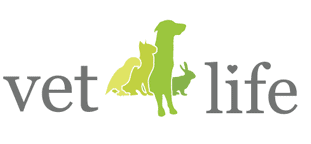 As cats get older, their nutritional requirements start to change. In veterinary practice, cats of seven years and over are placed in the senior category.
As cats get older, their nutritional requirements start to change. In veterinary practice, cats of seven years and over are placed in the senior category.
As your cat goes through life, you will notice they have changed their food as they have grown up. Kittens, for example, need a much higher calorie intake as they are growing. Once they reach adulthood, the diet you feed them will change as their growth slows down and there is a change in nutritional requirement for their bodies. This is exactly the same for our senior cats. Once they reach 7-8 years old their bodies change once more and they therefore need to be moved onto a suitable senior diet.As a cat gets older, they can develop a number of common clinical conditions such as dental disease, kidney disease and hyperthyroidism. Many of these conditions are non reversible but can be managed effectively with medication and the correct diet.
Arthritis is also common in older cats. Although most arthritic cats don't show obvious signs, they may have difficulty gaining access to litter boxes and food and water dishes, or stop sleeping in their usual spots, particularly if they have to jump or climb stairs to get to them.
As cats age, you may notice they become less active and spend more time indoors. For this reason, senior diets are generally slightly lower in calories to prevent obesity and prevent unnecessary pressure on the heart and joints.
Senior diets are generally higher in Omega 6 fatty acids and some even have added supplementation of Glucosamine and/or chondroitin to maintain healthy joints and slow progression of arthritic damage.
The kidneys are responsible for filtering the blood, producing urine, and maintaining water and electrolyte balance within your cats body. As older cats are prone to kidney damage, the senior diets are naturally lower in phosphorus and sodium to help prevent damage to vital organs.
Senior specific foods will have controlled levels of phosphorus and sodium to help maintain healthy kidneys. For those cats with diagnosed kidney disease, your vet may recommend placing them on a prescription renal diet as this has even lower phosphorus and sodium levels to help reduce the workload for the kidneys.
There are other added benefits to senior foods such as:
- increased levels of fatty acids for skin and coat condition
- multivitamins for brain health
- friendly gut flora to aid digestion
- dental benefits to maintain healthy teeth
When changing your cat onto a new food, remember to change over very slowly over a 1-2 week period. Mix a handful of the new diet in with their usual food and slowly reduce the ratio of their old diet. Cats can be fussy eaters so doing this slowly will reduce the chance of them rejecting the diet or developing an upset tummy.
- Feed older cats little and often, as they may feel overwhelmed by a large amount of food.
- Treats may be offered occasionally (unless unsuitable for a medical condition).
- Serve food at room temperature to ensure your cat can taste and smell it properly. You can even warm the food slightly to increase the smell.
- Leave dry food down for them to graze throughout the day and offer fresh wet food at regular intervals
- You can try increasing the number of feeding stations around the home to encourage them to eat in their favorite room.
- We would also recommend 6 monthly health checks for your senior cats to monitor health status and pick up any early signs of clinical diseases.
Water intake
We recommend encouraging your senior cats to increase their water intake each day. This can be done by adding an additional number of water bowls around the house, adding some water to their wet food and even introducing a water fountain.
Summary
In their senior years cats need a high quality, palatable diet with easy to digest protein and a careful balance of nutrients. We recommend moving your feline friends onto a suitable senior diet to support their body changes and nutritional needs as they age.
Encouraging increased water intake to help support hydration and bringing your senior cat in for regular check ups will help to ensure that your feline friend remains in the best of health.
Read more about senior cats:


